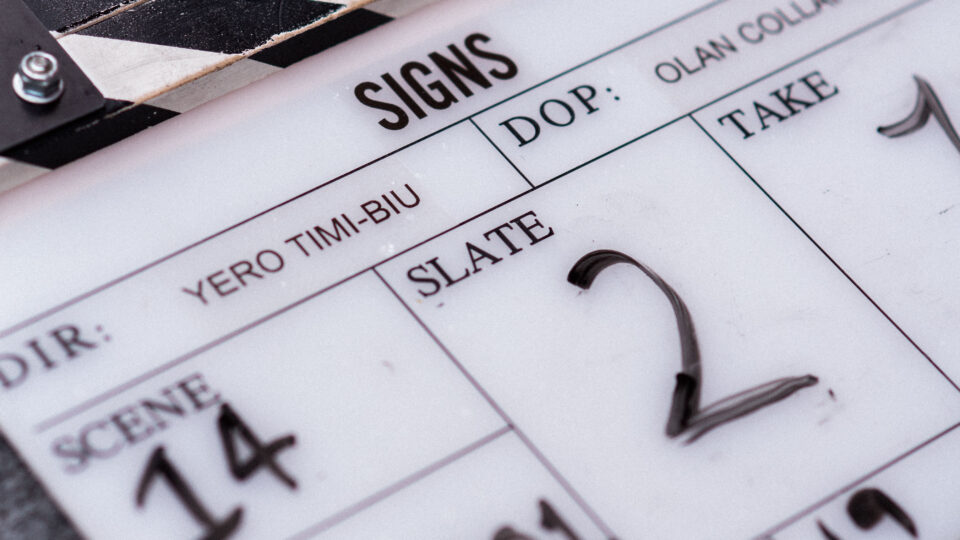(All photographs from Signs by Alex Kurunis)
Zia Holloway talks to experienced screenwriter and director Yero Timi-Biu about all things screenwriting and the craft and reality of writing for film and TV.
Yero’s distinct stories and individual writing style has made her a standout voice in the film and TV world. With shows in development with Sky, the BBC, and experience in a plethora of writers’ rooms, Yero has developed a precious insight the industry. Kind enough to share her expertise, Yero dispels some myths around screenwritings and offers some advice for emerging screenwriters.
So, what is screenwriting?
A screenwriter is an architect. A world-builder. They’re responsible for creating the blueprints for the film and articulating something visual in written form.
Beyond being a ‘blueprint for a story,’ what else should a script achieve?
You should create a world that jumps off the page. It should make an actor be like, ‘I really want to do this,’ or a director say, ‘I have to direct this.’ You’re crafting an experience.
Have you got any tips for generating ideas?
Ideas might come to you in the most random of places. Yero refers to her experience in New York when she was coming up with an idea for a feature film All I was doing was writing and going to the gym. When I was boxing I was thinking of all of these ideas. I can never just sit and be like ‘hmm what should I write today.’ You know all of these things [ideas] come in unexpected places.
In terms of character Yero has multiple techniques to generate ideas. I start all of my stories with mind maps and character profiles. They [the characters] can come from someone I’ve been inspired by on a walk three years ago or an archetype I’m exploring. I always have a dream cast where I can be inspired by an actor’s mannerisms and energy to avoid the common trap of writing different versions of myself. A 50 question doc is also useful. It starts out with basic details, ‘character name, eye colour,’ then you can get deeper with ‘What music do they listen to? what do they believe in? What’s their biggest secret’. This really helps me when I get stuck with plot or story as it helps me understand the dynamics of dialogue, conflict, and my character.
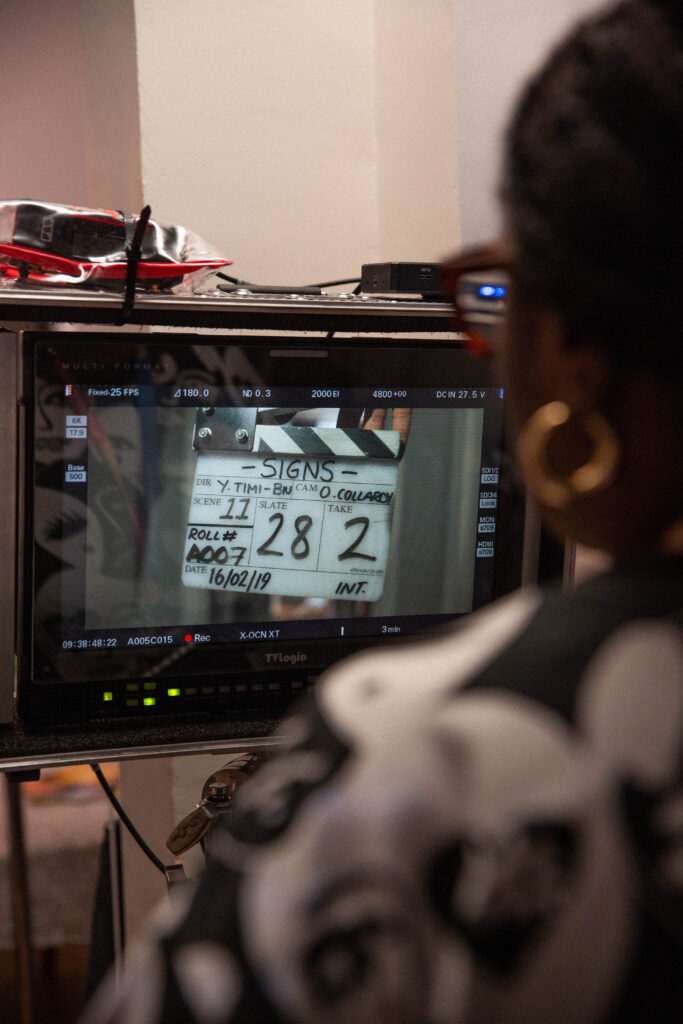
How did you find out who you are as a writer and hone your voice?
I started to write what I wanted to see on screen. I’m not just writing what I think other people want to see, I’m writing properly from me and for me. I was getting to know myself as a person which meant I was getting to know myself as a writer. But that’s what’s so exciting about being a new writer. Experimenting. Exploring. Aaron Sorkin gets to do every genre and write whatever he wants. Why can’t you?
Do you revisit your old work?
Not only is it good to see how you have evolved, but I don’t think any idea is bad. If something isn’t working there’s a reason for that, but it still doesn’t mean you should write it off.
A feature I wrote in New York seven years ago has now evolved to become a vastly different series. [It was a] seed planted in my head and now it’s coming back full circle with lots of help. I’m really glad I experimented with that specific story and even though it didn’t go anywhere then, the essence of it is in somewhere else.
I recommend that you always make a note of what you ‘get rid of’. Me and lots of other writers all have a ‘vomit’ Google Doc of things that we’ve either culled or cut, whether that’s a line of dialogue or a character, or a joke. They always come back. They’re like ghosts.
The process doesn’t end at the first draft. Your short film Signs (watch it here) took a year of redrafts. What is the drafting process like and how do you stay in love with your idea?
Honestly, it can be very frustrating after a while but that’s the process… it goes from something you’ve done on your own and it being a passion project, to all of a sudden having lots of noise and different people with different opinions on it. That’s when it becomes a collaboration. And when you have an end goal to make it and you really love what you’re doing, you persevere.
Signs began life as a 30-minute pilot spec script. Have you got any advice for writing a spec script, or calling card script?
The joy of a spec script is you write whatever the hell you want. It’s really exciting because there’s no limit. For me I always write from my own experience. I think that the first thing that you write, even though it’s limitless, you do have to feel really confident about what you’re saying and what you’re talking about.
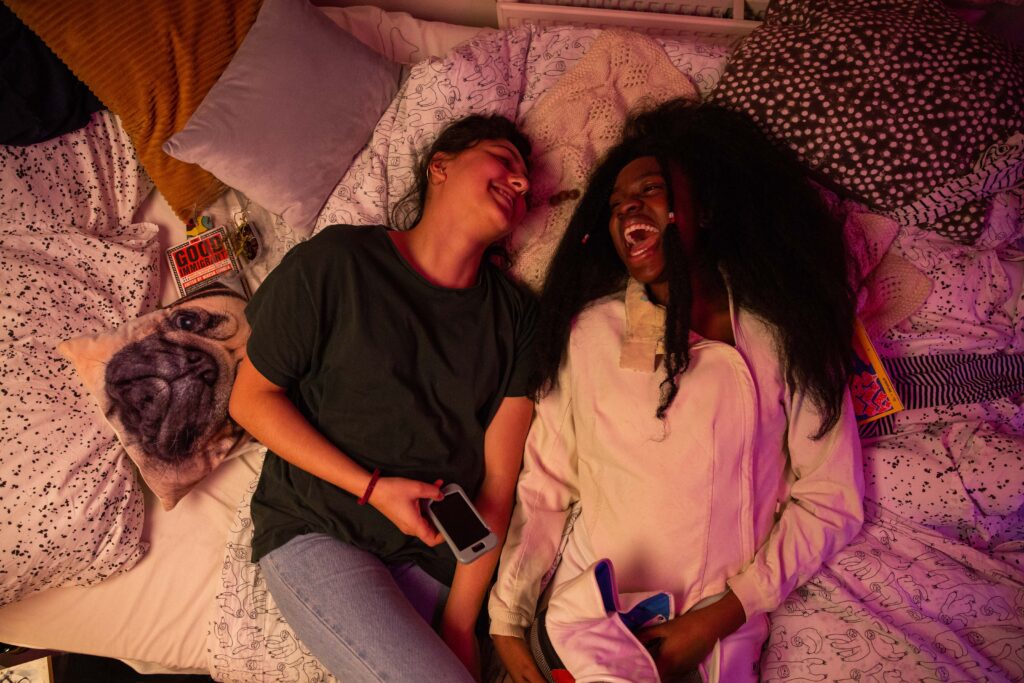
And how do you know when it’s ready?
I thought it was ready at one point and sent it to a trusted friend who really likes TV. If you have that one friend who lives and breathes TV and has no interest in working in it, that’s your audience! Use them. If they have questions that you can answer confidently then great, and if you can’t, then it’s not ready.
There’s also a preconception that you have to keep writing until you think it’s perfect. I think you have to get to a place where you can leave it for a bit and then come back to it. Also you only have one shot to impress someone so make sure its formatted correctly, and check for typos!
You can check out the industry standard formatting of scripts Here on the BBC Writersroom.
So you write an amazing short script, or a spec, and you start working with different people and on different productions. What is the reality of being a professional screenwriter?
When it actually comes to producing the script and collaborating, there isn’t a ‘how-to’. You’ve just got to experience it. When money gets involved, and a whole team of people create a story about your story, it stops becoming solely your work. No-one teaches you how to adapt and you can only learn to through experience.
So how do you recommend new writers navigate the collaboration process?
At the start of a TV series I wrote a development process, a criteria, of what I wanted from the show and the themes I wanted to present. It was an accountability thing for me, establishing what I really wanted out of the show and as a collaborative process. If we started deviating from it, I had a document to refer back to.
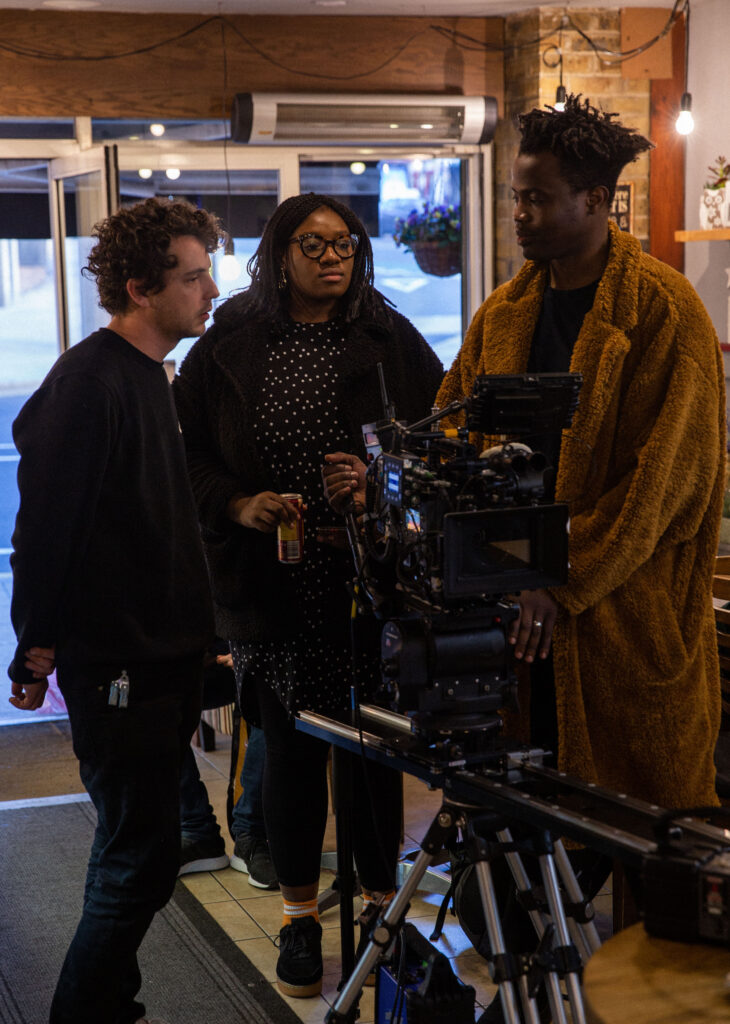
How do you know what battles to fight during the collaboration process?
That’s a difficult one. Experience. Instincts. Integrity is really huge for me and if I feel that I’m slipping or that I’m doing something I’m not comfortable with for the sake of the story or a greenlight, I step back and say ‘no thanks.’ On the other hand, you have a script. Then a director. And a producer. But there’s so much more to get your story to screen. Your story will get chopped and changed by actors, directors, editors… several seconds of a scene will be cut here, a line of dialogue won’t be delivered by an actor as you intended, and lots changes in post… and that’s when you have to let it go sometimes.
Is there anything else you’d like to add about screenwriting and what you may have wanted to say to your younger self when you were starting out in the industry?
Screenwriting is a very long and lonely job but it’s also great and fun and rewarding. They say being a writer is like giving yourself the hardest piece of homework for the rest of your life. You always learn from writing and you will keep on learning long into your career. But the future is very exciting.
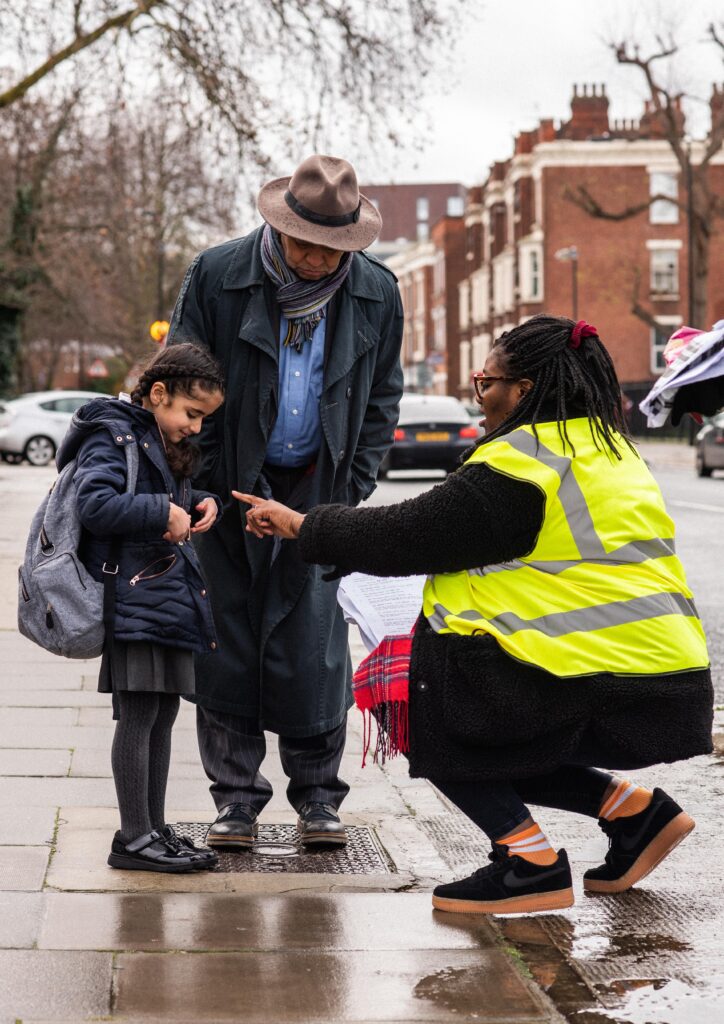
Yero also spoke about her screenwriting career at our October Labs event. Watch it back on our YouTube channel.
